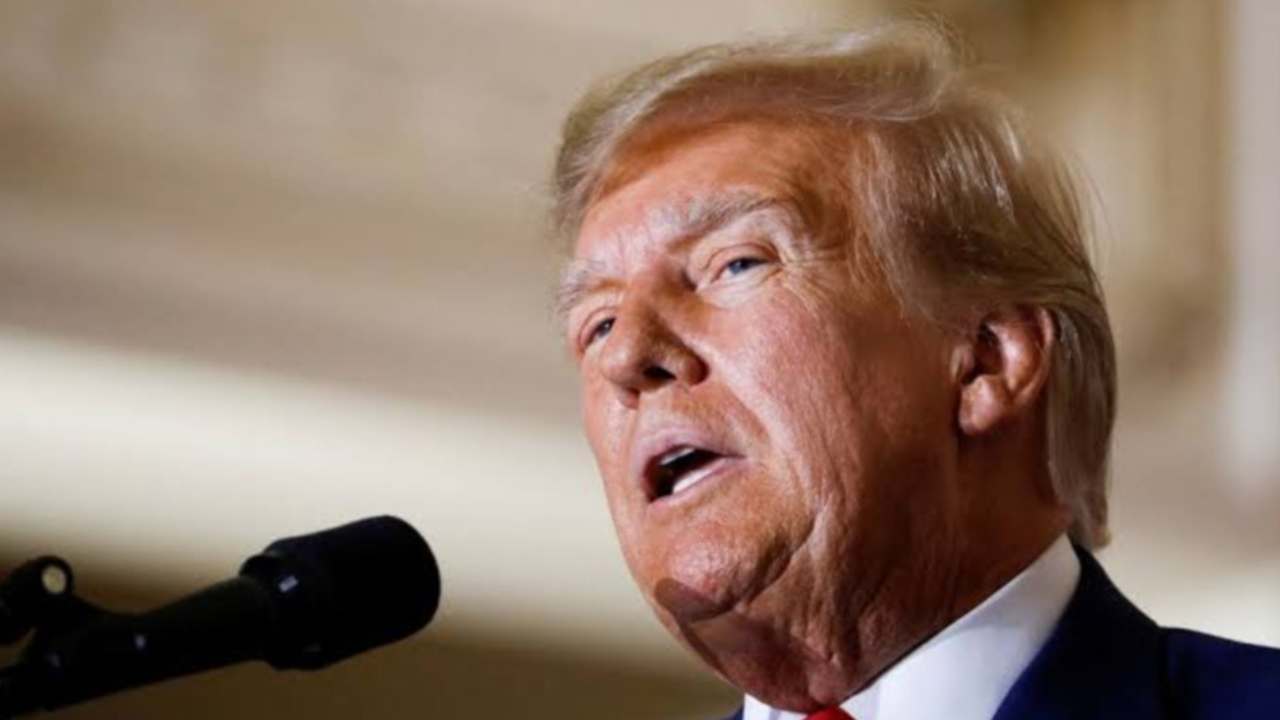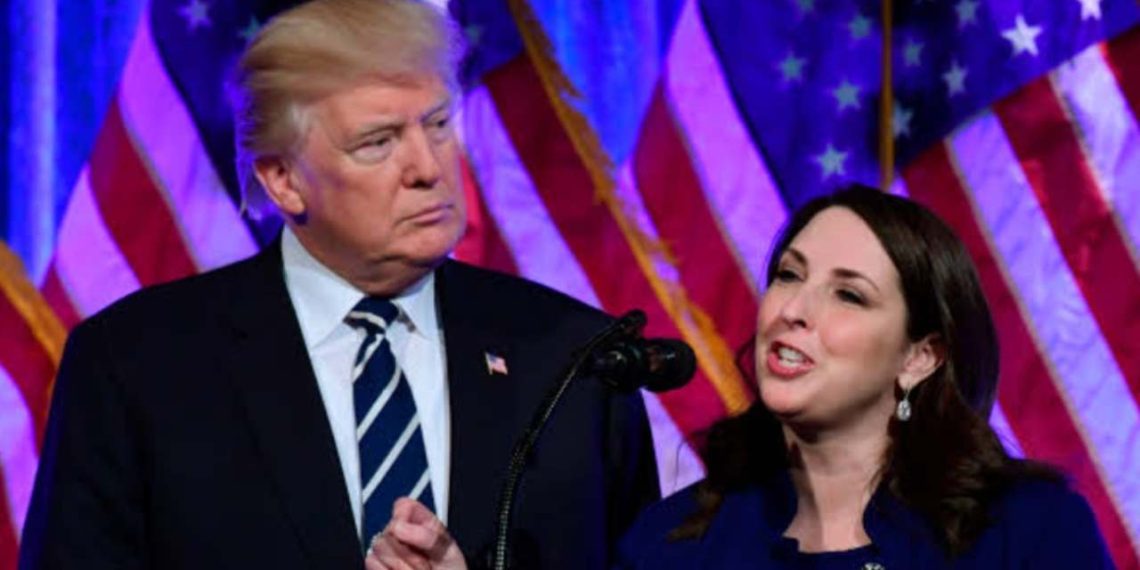Republican Party leader Ronna McDaniel announced her resignation on Monday amidst pressure from the party’s presumed 2024 nominee, Donald Trump, marking a significant power shift.
This move underscores Trump’s influence within the party as he gears up for a potential rematch against Democratic President Joe Biden later this year.
Trump’s public declaration on social media following a February 5 meeting with McDaniel hinted at forthcoming changes within the Republican National Committee (RNC) following his decisive victory in South Carolina’s primary over the state’s former governor, Nikki Haley.

One week later, Donald Trump endorsed North Carolina Republican Party Chair Michael Whatley as the next RNC chair and his daughter-in-law, Lara Trump, as co-chair, solidifying his control over the organization. Whatley’s alignment with Trump’s unsubstantiated claims of election fraud in the 2020 election, as reported by CNN, further underscores the former president’s influence within the party.
“The RNC has historically undergone change once we have a nominee and it has always been my intention to honor that tradition. I remain committed to winning back the White House and electing Republicans up and down the ballot in November,” McDaniel said in a statement.
Lara Trump expressed gratitude to Donald Trump for his endorsement, confirming that the transition would take place during the RNC’s spring meeting on March 8, strategically timed just after the Super Tuesday Republican nominating contests spanning 15 states and one U.S. territory.
Additionally, RNC co-chair Drew McKissick announced his resignation. The RNC’s pivotal role in fundraising for the nominee, disseminating the party’s message, mobilizing resources, and voter turnout underscores the significance of these leadership changes.
The incoming successor to McDaniel will confront the daunting task of uniting a party fragmented by internal divisions.
Ronna McDaniel, currently serving her fourth consecutive two-year term as RNC chair, secured re-election last year.
However, she encountered criticism from within the Republican ranks regarding fundraising efforts and the party’s electoral performance. Donald Trump’s defeat in the 2020 presidential election, coupled with the party’s underwhelming showing in the 2022 midterm elections, further exacerbated these concerns.
Critics of McDaniel found validation in February when financial disclosures revealed that the RNC possessed just $8 million in cash reserves at the close of December, marking its lowest level in a decade.

Additionally, the Democratic National Committee outpaced the RNC in campaign fundraising during the same period, intensifying scrutiny of McDaniel’s leadership.
According to a source with direct knowledge, the February 5 meeting between Trump and McDaniel was contentious, with McDaniel cautioning Trump about the diversion of many of his donors’ funds to Turning Point USA, led by Charlie Kirk, causing financial strain for the RNC.
As Trump endeavors to solidify his control over party leadership, an RNC member introduced resolutions aimed at barring the party from covering Trump’s legal expenses.
The former Republican president, who is confronting four criminal trials and was recently instructed to pay approximately $540 million in judgments in two civil lawsuits, maintains his innocence amidst these legal challenges.
Chris LaCivita, a Trump campaign adviser and Trump’s proposed choice for the RNC’s chief operating officer in the restructuring assured reporters on Friday that the organization wouldn’t allocate raised funds to cover Trump’s legal expenses.
Trump endorsed Ronna McDaniel, the niece of his former critic and 2012 Republican presidential nominee Mitt Romney, for RNC chair after her pivotal role in securing her home state of Michigan in the 2016 presidential election, where Trump defeated Democrat Hillary Clinton.
Initially known as Ronna Romney McDaniel in public life, McDaniel dropped her middle name following Trump’s endorsement, reportedly at his request as multiple news outlets have indicated.
Mitt Romney, currently serving as a U.S. senator from Utah, vehemently criticized Trump as a “phony, a fraud” in a scathing March 2016 speech, urging fellow Republicans to reject Trump’s candidacy.


















